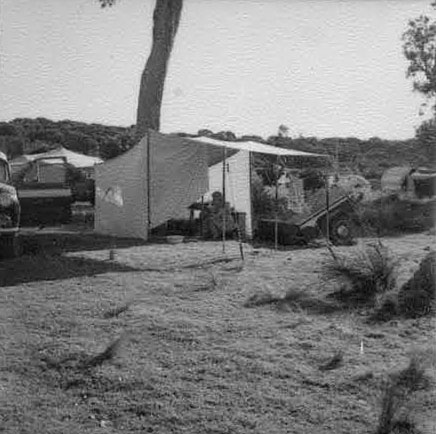Caravan touring in adverse weather
This story happened on: 11/07/2014
Gallery
Hello,
I just wanted to share this article with everyone, which talks about how to stay safe when driving in bad weather conditions. It may have some handy advice you can take away with you.
If you decide to take your caravan on a tour in the winter, it is to be expected that you may have to deal with a number of adverse weather conditions. From strong winds to snow and ice, each weather condition can bring danger which makes it vital to prepare for what may lie ahead.
Strong winds
Whether you are towing, setting up -or even if your caravan is in storage- it is highly recommended to prepare for any danger or damage that could occur. Powerful winds account for a number of insurance claims, ranging from small damages to write-offs in the more serious cases.
Snaking and jack-knifing (tow vehicle and caravan lose sync) are most likely to happen in strong winds. It is advised that you avoid towing your caravan in strong winds especially when there have been weather warnings for high sided vehicles. If you have to travel in these conditions it is highly recommended that you choose a route that is not exposed to stretches of road crossing valleys.
If you have to necessary take this route you should also fit your caravan with a caravan stabiliser. Wheel bands and caravan extension mirrors will also help reduce these danger risks. Caravan stabilisers produce a smoother towing experience, wheel bands help the driver stay in control and extended mirrors improve vision to assess what risks may be occurring on the road.
Protecting your caravan when stationary or in storage mainly requires the same general measures. Positioning is key: consider the direction of the wind to determine whether the caravan may be hit with the force of the wind side on. If possible, when storing your caravan it is advised that it is kept under cover in winter months to reduce the risk of damage. Placing heavy items on the caravan floor when stationary as well as using straps to pin the caravan down will also reduce the risk of damage.
How to drive in snow and ice
We strongly advise that you do not set out in your caravan in snow and ice conditions, although if driving in the snow is unavoidable follow our precautions to avoid the risk of danger:
• Clear all snow from your windows and your windscreen of your car and caravan as well as both roofs to reduce the risk of snow falling onto other vehicles.
• Loss of traction is one of the biggest dangers- reduce your speed and increase breaking time.
• Stick to main roads and avoid steep hills and sharp bends.
• Allow wider space between you and the vehicle in front as stopping distances are increased in frosty conditions.
• Use dipped head lights if visibility is reduced.
Rain and floods
As above we also advise that if you can avoid towing your caravan in heavy rain then do not set off until it dies down. Driving a car in heavy rain is dangerous enough let alone with the added pressure of towing a caravan on the road. If you do happen to get caught in these weather conditions we advise you do the following:
• Reduce your speed.
• Hard rain may have an impact on visibility. If your caravan is hard to visualise in your mirrors we strongly advise you stop off somewhere or pull over to a safe location until the rain dies down.
• Keep your distance from other vehicles as breaking distances will be affected.
To find out more about essentials needed for adverse weather conditions, take a look at our winter caravanning leaflet. We would also always advise that you take out relevant caravan insurance before travelling.
Why not read our blog post about what to consider when touring with your caravan.


